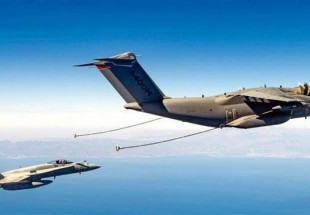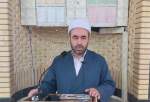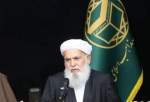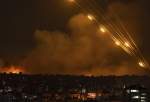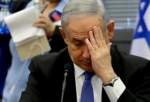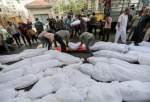The decision was announced by Saudi Arabia on Saturday and confirmed by the US, coming at a time of mounting global outcry over the high number of civilian casualties and the murder of Jamal Khoshoggi.
The official Saudi Press Agency (SPA) reported that Riyadh had itself demanded to stop inflight refueling services by the US military for its warplanes after "consultation" with Washington.
"Recently the kingdom and the coalition has increased its capability to independently conduct inflight refueling in Yemen. As a result, in consultation with the United States, the coalition has requested cessation of support for it's operations in Yemen," the SPA said.
According to Saudi-owned Al Arabiya al-Hadath channel on Saturday, Saudi Arabia has a fleet of 23 planes for refueling operations, including six Airbus 330 MRTT used for Yemen, while the UAE has six of the Airbus planes.
Riyadh also has nine KC-130 Hercules aircraft that can be used, it added.
Pentagon chief Jim Mattis confirmed that the decision to stop refueling was taken in consultation with the US government. "We support the decision by the kingdom of Saudi Arabia," he said.
Several US officials, however, were quick to clarify that the end to refueling would not stop American training and military assistance for the Saudi aggression against Yemen.
Saudi Arabia and the UAE have recently launched a new offensive against Hudaydah, which is a lifeline for millions of Yemenis, after seeing several campaigns to occupy the main port city thwarted by Yemen's Houthis and their allies in the army.
Mohammed Ali al-Houthi, head of the Houthi supreme revolutionary committee, said US calls for peace and its political posturing are meaningless.
"The continued escalation of attacks ... by the US-Saudi-Emirati coalition confirms that the American calls for a ceasefire are nothing but empty talk," he wrote in a column published by the Washington Post.
The ceasefire call, he said, is an attempt "to save face after the humiliation" caused by the murder of Washington Post columnist Khashoggi, a critic of Saudi policy, who was brutally murdered at the US consulate in Istanbul last month.
US Representative Ro Khanna, an advocate of barring US military support to the Saudi war on Yemen, has reportedly introduced a measure in the House to ensure the Trump administration follows through on its decision.
"From everything that I’ve understood, from activists on the ground, from people who are briefed on policy, the war could not continue without the assistance of US refueling,” he told US online news publication The Intercept.
Since the outbreak of the invasion in 2015, the US military has been refueling Saudi aircraft that conduct airstikes on Yemen.
Senator Chris Murphy emphasized that the Trump administration should cut off all forms of support for the Saudi-led coalition, not just refueling.
“Why are we still helping the Saudis with targeting? Why are we still selling them the bombs at a discount?” he asked.
“Now that it’s no longer a secret that the war in Yemen is a national security and humanitarian nightmare, we need to get all the way out.”
In January 2016, Saudi Arabia said the US and UK military advisers were in the command and control center for strikes on Yemen and had access to lists of targets.
The brutal war was launched in March 2015 in an attempt to reinstall Yemen's former Riyadh-allied regime and crush the Houthi Ansarullah movement, which has been running state affairs in the absence of an effective government.
In June, Saudi Arabia and the UAE launched an offensive against the port city of Hudaydah despite international warnings that it would compound Yemen's humanitarian crisis.
The Western-backed imposed war on Yemen, coupled with a naval blockade, has destroyed the country's infrastructure and led to famine as well as a cholera outbreak.
So far, the aggressors have been unable to penetrate the defenses of the Yemeni nation and Houthi fighters.
KD

